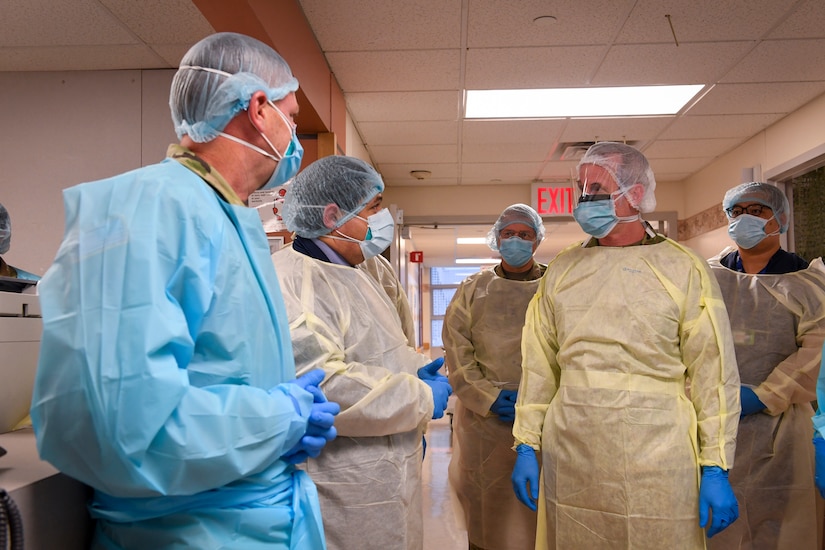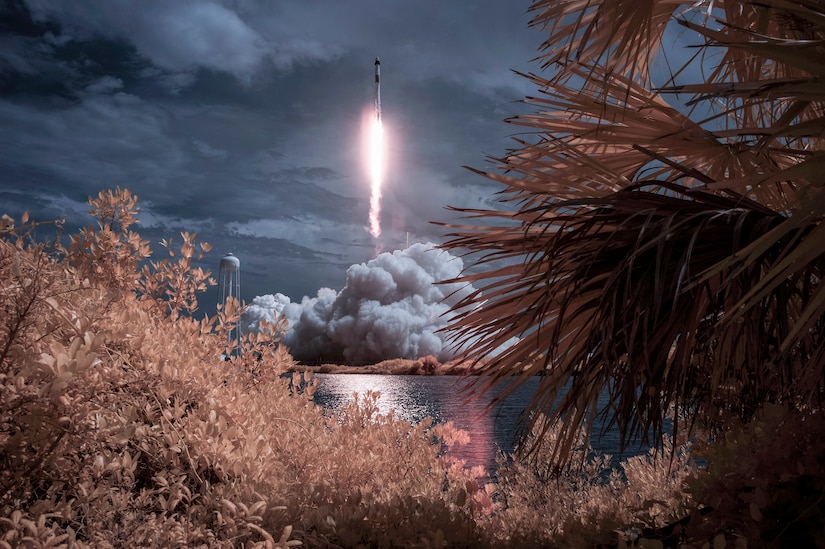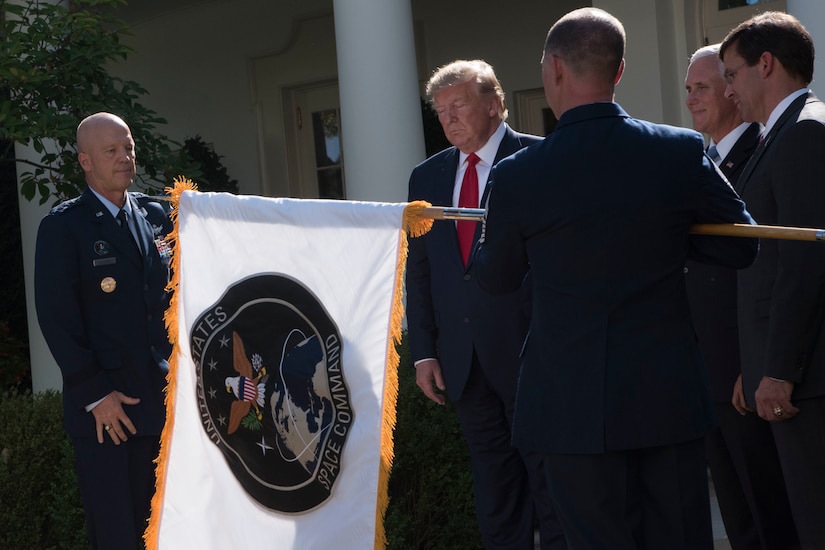VanHerck is currently the director of the Joint Staff in the Pentagon, and Dickinson serves as Spacecom's deputy commander.
If confirmed, VanHerck will also command the North American Aerospace Defense Command. He would also be the third Air Force officer in a row to hold the position. He would succeed Air Force Gen. Terrence J. O'Shaughnessy.

Dickinson would replace Space Force Gen. John W. "Jay" Raymond. Raymond currently serves as chief of space operations and Spacecom commander.
While Space Command is DOD's newest combatant command, established just last year, Northcom is not that much older, standing up in October 2002 in response to the attacks of 9/11.
The command is responsible for the defense of the homeland, and at today's hearing, VanHerck said "no mission is more sacred."
The command is also the military lead for support to civilian agencies and has provided aid during Hurricane Katrina, fires in the western U.S. and the current response to the COVID-19 pandemic.
The global situation is much more complicated than when the command was formed with very real threats from actors across all domains, VanHerck said. "We must remain prepared to meet the threats head on defend our homeland from an increasingly assertive set of peer competitors, rogue nations and nonstate actors, who are committed to creating a new world order and influencing our freedoms and our way of life," he told the Senate panel.

With his NORAD hat, VanHerck will command a binational agency that has defended North America for 62 years. If confirmed, he will work closely with Canadian defense officials to strengthen the already strong bonds between the two countries. He also pledged to continue outreach to Mexican defense officials.
"If confirmed, I commit … that I will provide my best military advice and candid views on the issues and challenges we face, and I will ensure that Northcom remains postured to defend the homeland and ready to provide timely support to civil authorities in order to eliminate suffering and ensure the safety of the American people," he said.
Dickinson has been intimately involved with the setup of Spacecom since it was a proposal. The command is less than a year old, but it had to hit the ground running, he noted. "I know well the tremendous responsibilities levied upon this command and it's incredible joint warfighters as I reflect on the responsibilities of the new position for which I've been nominated," he told the senators.
It is not that long ago that the idea of space as a warfighting domain would have been denigrated, he said. "Frankly, I'm amazed at where we are today," the general said. "Just over a year ago, during General Raymond's nomination hearing, he testified of the great alignment in our nation with acknowledging space as a warfighting domain, just like land, air, sea and cyber. Based on that alignment. We as a nation took bold steps towards protecting and defending our critical space capabilities by establishing U.S. Space Command and subsequently standing up the U.S. Space Force to better organize, train and equip our space warfighters."

Dickinson said the new domain is facing "the most significant transformation in the history of U.S. national security space programs. The scope, scale and complexity of the threats to our space capabilities are real and concerning."
Space is not a benign environment, he said, with near-peers and others threatening the foundational domain. "We no longer have the luxury of assuming our access to an ability to leverage the space domain is a given," he said.
The goal for the new command is deterrence – Dickinson said he wants to ensure conflict does not extend into space. "The best way I know how to prevent that from happening is be prepared to fight and win if deterrence were to fail," he said.






No comments:
Post a Comment